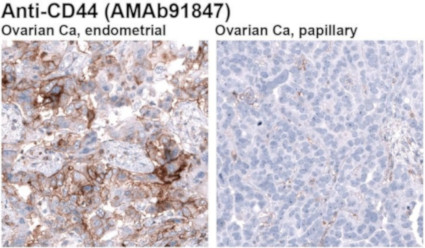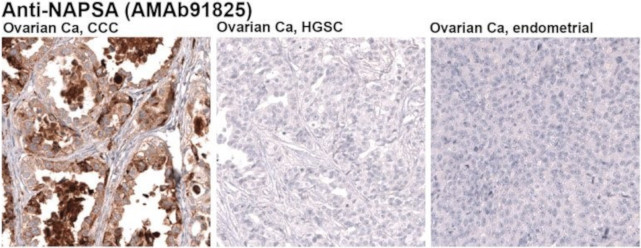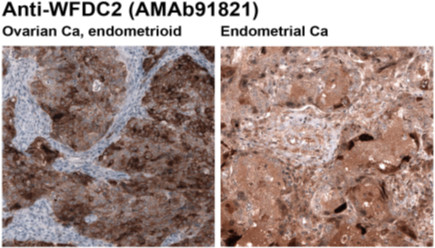Neuroinflammation monoclonal antibodies
Atlas Antibodies offers a wide range of neuroinflammation markers. Their antibodies are affinity-purified, reproducible, and selective for their target proteins through an enhanced validation process.
Ovarian cancer is the deadliest form of cancer in the female reproductive system. Atlas Antibodies has released novel monoclonal antibodies with diagnostic and prognostic value in ovarian cancers.
Gynecologic cancers originate in the female reproductive organs. The primary gynecologic cancers are cervical, ovarian, uterine, vaginal, and vulvar. Of these, ovarian cancer is the deadliest form. It is the eighth most common cancer among women and the fifth cause of cancer-related death in women, with a 5-year survival of only 30–50%.
Ovarian cancer is often asymptomatic in the early stages. As a result, most patients with ovarian cancer are diagnosed at an advanced clinical stage when curative therapy is no longer possible.
By the time of discovery, approximately 70% of the tumors have spread beyond the ovary and are rarely curable by surgical resection or surgery combined with postoperative chemotherapy and/or radiation therapy.
The primary tumor biopsy followed by immunohistochemistry remains the gold standard for identifying the molecular alterations associated with the tumors and identifying potential prognostic and predictive biomarkers for early-stage detection.
However, in ovarian cancer diagnostic, none of the biomarkers available today are accurate enough to identify early-stage ovarian cancer (sensitivity) without including a considerable fraction of false positives (specificity).
Currently, the circulating tumor antigen CA125 is the only clinically used marker. However, testing for CA125 is not specific or sensitive enough to be clinically relevant as a screening tool in the general population, especially in the context of early tumor detection. In addition, at least 20% of ovarian tumors fail to express CA125.
Therefore, there is a high demand to identify biomarkers specific to this disease for screening for early detection, as well as new therapeutic targets. The capacity of these biomarkers to predict the existence, stages, and associated therapeutic efficacy of ovarian cancer would enable improvements in the early diagnosis and survival of ovarian cancer patients.
Atlas Antibodies has released new PrecisA Monoclonal™ antibodies targeting 23 proteins relevant to ovarian cancers (such as high and low-grade serous, endometrioid, clear cell, and mucinous carcinomas), with diagnostic and prognostic values validated on human cancer tissues.
Among the new markers with high potential use as diagnostic tools for ovarian cancers, CD44, NAPSA, and HE4 (WFDC2), have already demonstrated clinical results:



We gladly support you by keeping you updated on our latest products and the developments around our services.